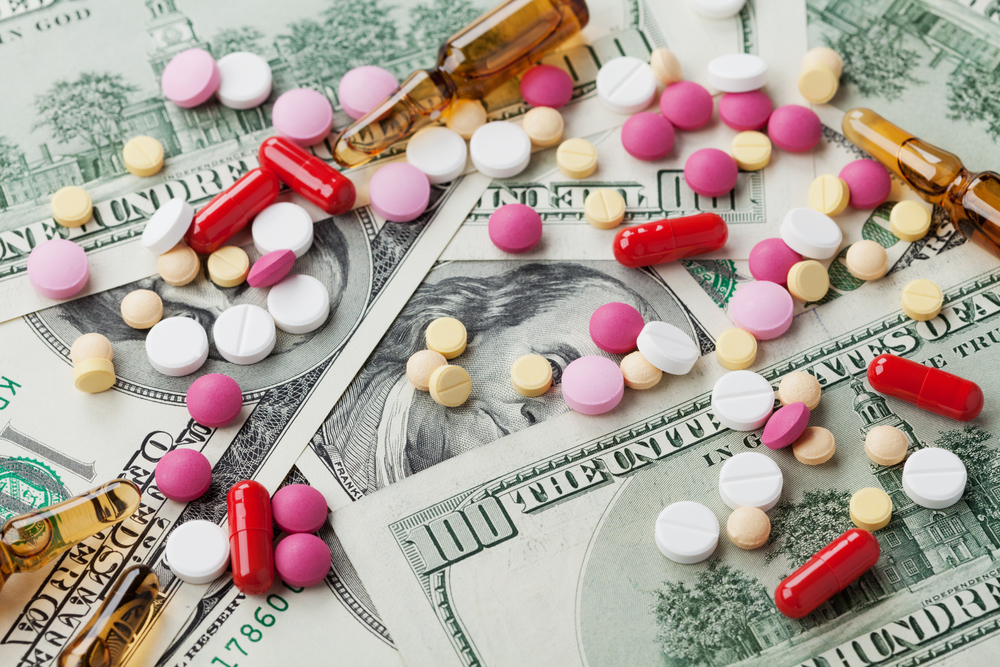In my role as medical director of the Moss Clinic, I present a “mission moment” case. This because these honorable volunteers on the board are mostly from other industries, and this provides some understanding of the kinds of issues our patients bring us.

This case was C.M., a 45 year old African American with Crohn’s Disease – and was a great example of “sinking the ship for a ha’p’orth of tar.”
Crohn’s causes erosion of the intestinal lining, but he’d been on Remicade, which is one of the new “biologicals” that blocks the inflammatory reaction, and was doing pretty well he told me.
Then he suffered the “Catch-22 of American medicine.”
He got sick to the point where he couldn’t work, lost his job, and with it, of course, his health insurance.
Moss Clinic caters to patients with no insurance, so he was able to come to us. He was having abdominal pain, bloody diarrhea, and his weight had dropped from 145 to 127 lb.
I made a referral to gastroenterology - but it takes several weeks to get somebody in. Or, at Moss we can sometimes get medicines through a Patient Assistance Program. But our pharmacy told me it would take 4 to 6 weeks for approval.
A week later, I hear C. M. has been admitted to Mary Washington, bleeding profusely and needing transfusions (his blood count had dropped from a hemoglobin that should be 13 or above, to 5.6.).
A “Ha’p’orth of Tar” and Profitability
This quaint old expression means spoiling the whole project for stinting on that last little bit of “tar.” Last little expense, which in this case was his Remicade.
That’s all he needed to keep him well. So why didn’t he just get a prescription and fill it?
For the simple reason that without insurance Remicade costs $1,300 a pop for the medicine, but which has to be given as an infusion every two weeks. And when you add the price of administration it puts the cost up to about $2,800.
Whenever I have heard anyone complaining about the outrageous price of medicines, they never seem to go on to ask “are the high prices justified. Are the drug companies being unreasonable?”
The industry always justifies their high prices on the costs of development being so high. But this is blowing smoke, claims Gerard Anderson, Professor of Health Policy and management at Johns Hopkins, reported by CNBC, saying “research and development is only about 17 percent of total spending in most large drug companies.”
Unlike other countries, there is no control on the price of drugs in the US – so prices rise continuously, far outstripping cost of living. A study by the University of Pittsburgh reports the net price of drugs rose more than 3 times the rate of inflation between 2007 and 2018.
The companies use many fandangles to able to be so profitable – using multiple devious tricks to maintain a drugs patent/exclusivity. Aggressively selling to doctors and the public. And it seems likely many of the policies, including Medicare being forbidden from negotiating group discounts, restrictions on importing medicines so drugs cost twice as much in the US - all of which could be changed by legislation - are likely the result of the massive amounts the industry spends on lobbying. $306 million in 2020 for example - according to Statista.com.
All this makes pharmaceuticals far more profitable than other industries – in 2017 for example they had a profit margin between 15% and 20%, - compared to between 4% and 9% for other industries, reports Biopharma.
The Morality
At the risk of seeming to get on my moral high horse, I would like to challenge the morality of the pharmaceutical industry.
Companies price their medicines according to “what the market will bear.” But if you are liable to die without it, you’re likely willing to pay quite a lot.
They also claim their drugs save a lot of down-stream expenses – and it’s true, C.M.’s hospital charges would probably have paid for a lot of Remicade. But without single payer healthcare, there’s no way for the hospital, that bears the expense of C. M.’s unpaid bill, to provide that preventative “Ha’p’orth of Tar.” Paying for outpatient medicines comes from a different “pocket.”
I suggest, if the industry put the wellbeing of their consumers before profiteering, they could reduce their prices. But, to ask them to do that would rely on drug company philanthropy, which is probably an oxymoron, and naïve.
Their polices seem to be in keeping with the morality of many of the super-wealthy, judging by the recent report from the IRS on the 1 percenters, like Jeff Bazos and Elon Musk. They don’t seem to see a moral obligation to their community – not when it comes to taxes. To the tune of some $163 billion.

Why we tolerate a system where a “ha’penny’s” worth of Remicade can’t be had by the C.M.’s of this world. Where we don’t practice prevention because the financial incentives are all screwed up, I guess is a question we should put to our spineless politicians.




